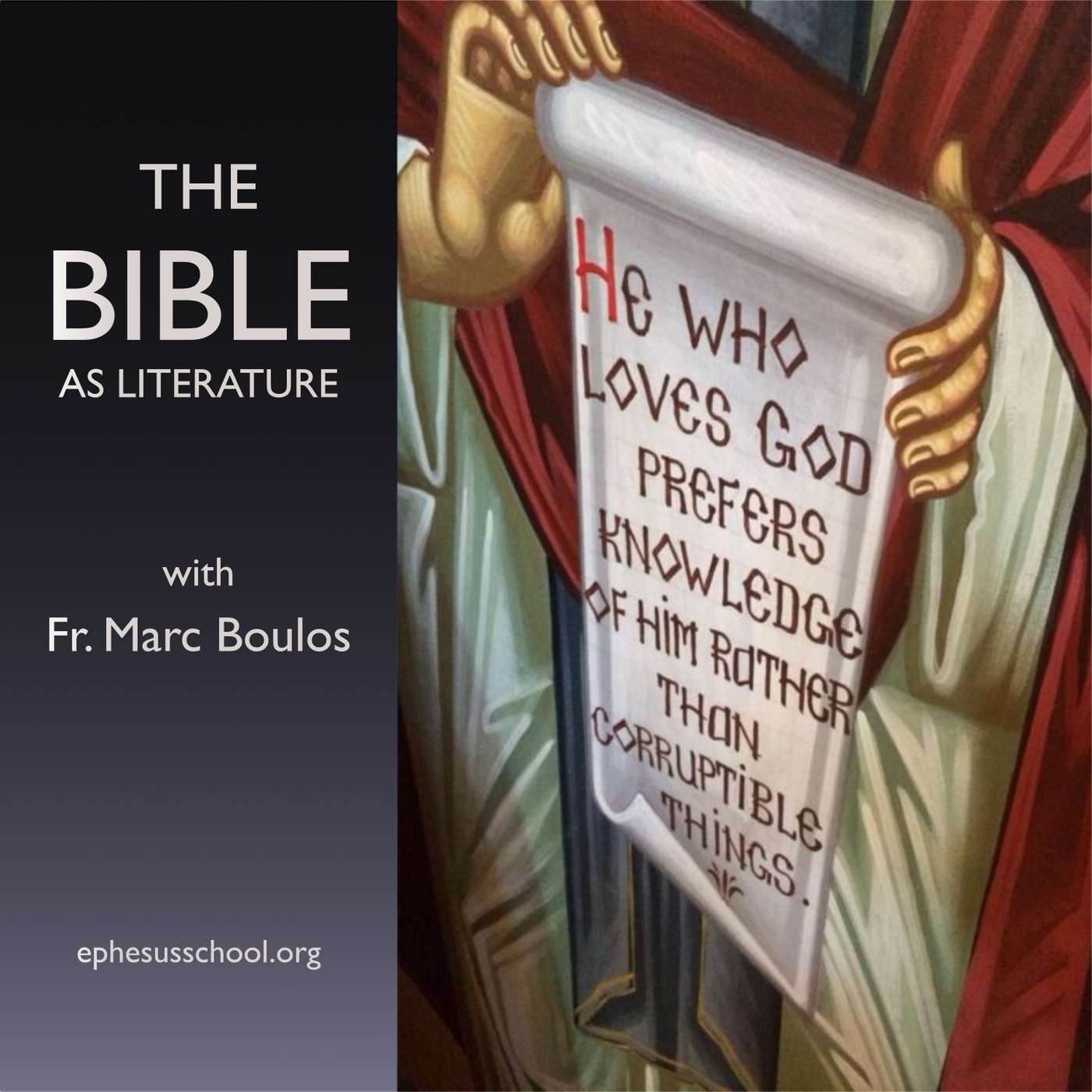
The Bible as Literature
The Ephesus School
Podcast
Episodes
Listen, download, subscribe
A Stranger and a Sojourner in the Land
What does it take to liberate people from exceptionalism? To liberate a teaching? Such a pernicious snare, that saying of yours, “family first.” It was your fear of losing the tribe that led you to elect a king and build a city against the will of God. So he sent his Shepherd to rescue his sheep from Cain’s cities, to liberate his people and the Torah from the stone idols fashioned by Cain’s sons. For those who have stayed with me on the podcast all these years, let me say it plainly: The idea that all people are created equal—an American principle—is beautiful and correct, but like the Torah, it is held hostage by identity politics. Like the preaching of the Cross under a Roman standard, it has been corrupted by a military-industrial nationalist agenda that feeds on the broken backs of impoverished women and children. Nothing changes under the sun. The Gospel of Luke is the Gospel to the Poor. It is a radical Gospel of Liberation. It this scroll of the Torah, the Lion of Judah, breaking free from the gilded prison of Herod's Temple—shattering the gates of brass—raging against you for your sake on behalf of the poor. He who has ears to hear to hear, let him hear! Still, the scroll of Luke is not a “liberation theology.” It is a warning that we must forsake what we have built, not build back again, but abandon what Cain built to roam freely with the Lion in his land. As Paul said: “For if I build again the things I have destroyed, I prove myself to be a sinner.” (Galatians 2:18)To borrow a term from psychology (one that I’ve used before), prophetic preaching keeps the disciple in a perpetual state of cognitive dissonance, unable to fall back on the natural human instinct to reconcile our innate hypocrisies. The teaching of Scripture is not “God is love.” The teaching of Scripture is “you are a hypocrite.” Until you submit to this repetitive literary frame, you can’t hear what Moses said, let alone Jesus. You can’t be set free. That is why the Qur’an went to such great lengths to stress St. Paul’s teaching of submission. Because the “children of the book” are no such thing. They still belong to Pharaoh. This week, I discuss Luke 7:11-16. Show Notes ש-ע-ר (shin-‘ayn-resh) / ش-ع-ر (shīn-‘ayn-rāʾ)The Hebrew word שַֽׁעַר (sha’ar) means “gate” or “entrance.” It corresponds to πύλη (pylē) in Luke 7:12, functional with Ruth 4: "Now Boaz went up to the gate (שַּׁעַר֮, sha‘ar) and sat down there, and behold, the close relative of whom Boaz spoke was passing by, so he said, “Turn aside, friend, sit down here.” And he turned aside and sat down." (Ruth 4:1)This root relates to awareness, feeling, and literary expression in Arabic: شِعْر (shi‘r)—“poetry”: This is one of the most common words from this root, referring to poetry or verse, which is central to Arabic literary tradition.شَاعِر (shā‘ir) - “poet”: This word describes a person who composes poetry, playing a significant role in Arabic and Islamic culture.شَعَرَ (sha‘ara) - “to feel” or “to perceive”: This verb means to feel or become aware, capturing the idea of sensitivity or perception.مَشَاعِر (mashā‘ir) - “feelings” or “emotions”: This word, in the plural form, denotes feelings, emotions, or sentiments, often used to express emotional sensitivity.شعار (shi‘ār) “logo, emblem, or slogan”: identification or awareness through a symbol, slogan, or distinguishing mark, a “sign.”مَشْعَر (mash‘ar) - “place of awareness” or “sacred monument”: Used in Islamic contexts, mashʿar refers to a sacred or symbolic place, often in pilgrimage sites like Mashʿar al-Ḥarām near Mecca.נ-ע-ם (nun-‘ayn-mem) / ن-ع-ي-م (nūn-ʿayn-yāʾ-mīm)The word Ναΐν (Nain) is derived from the Hebrew word נָעִים (na'im), meaning “pleasant” or “lovely.” Behold, how good and pleasant (na'im) it is when brothers dwell in unity! (psalm 133:1)It, too, corresponds (prescriptively) to the books of Ruth נָעֳמִי (Naomi) but also to the Qur’an. For reference: “Blessing,” “favor,” “bounty” (ni‘mah): نِعْمَة “And if you count the blessings of God, you will not be able to enumerate them.” (Surah Ibrahim, 14:34)“Bliss,” “luxury,” “delight” (na‘īm): نَعِيم “In gardens of delight.” (Surah Al-Waqi’ah, 56:12)“To live in ease or comfort” (na‘ama): نَعَمَ “And for you in them are many comforts.” (Surah Al-Mu’minun, 23:21)“Bestower of blessings,” “benevolent one” (mun‘im): مُنْعِم “And indeed, your Lord is the Forgiving, Possessor of great bounty.” (Surah An-Najm, 53:32)“Soft,” “gentle,” “smooth” (nā‘im): نَاعِم “[Some] faces, that Day, will be radiant.” (Surah Al-Ghashiyah, 88:8)“The blessings” (al-ni‘am): النِّعَم “They recognize the favor of God; then they deny it.” (Surah An-Nahl, 16:83)“Softness,” “ease,” “comfort” (na‘mah): نَعْمَة “Lest His punishment should befall you if you deny his blessing.” (Surah Ibrahim, 14:7) ★ Support this podcast on Patreon ★
The Bible as Literature RSS Feed
















